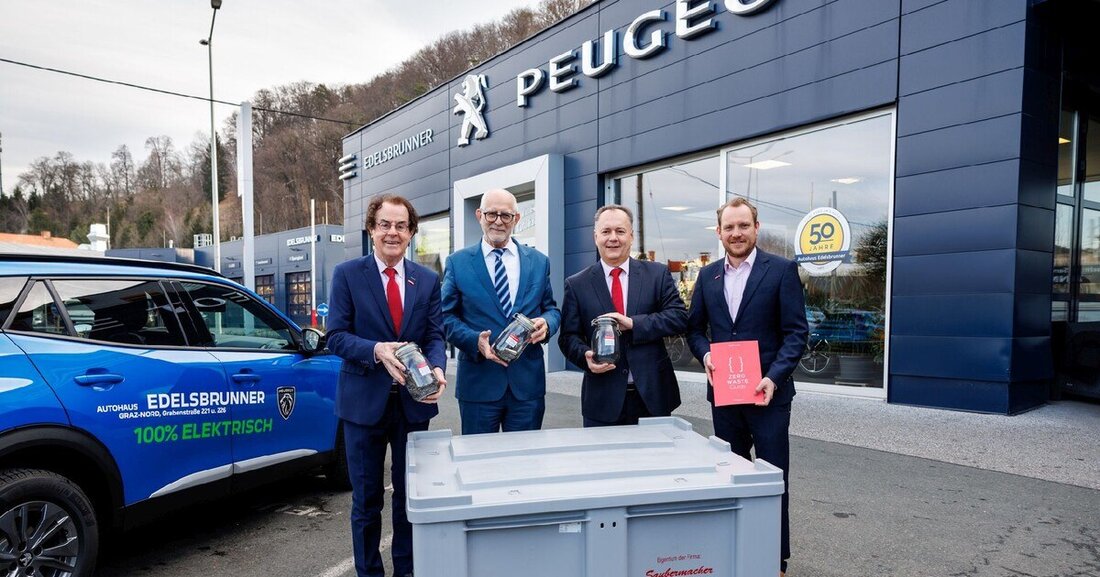New rules for the battery circuit
The current EU battery regulation brings with it new challenges for vehicle workshops when it comes to electric car batteries.

New rules for the battery circuit
The ecological requirements along the entire battery life cycle, which are set out in the new EU battery regulation, relate, for example, to the CO2 footprint, longevity, requirements for removability or interchangeability, the use of recyclate as well as collection, reuse and recycling at the end of life. Waste disposal specialist Saubermacher supports car dealers and workshops with tailor-made services for the circular economy with electric car batteries.
In 2023, almost 40 percent more electric cars were registered in Austria than in the previous year - that's already 20 percent of new registrations. This brings with it numerous challenges for vehicle companies and importers. According to the EU Battery Regulation, which has been in force since February 18, 2024, importers or initial marketers must take care of the return and disposal of vehicle batteries as part of the extended manufacturer responsibility. Dealers and authorized workshops must ensure the appropriate collection infrastructure and take back used batteries of any origin and composition on site free of charge. They are also obliged to implement strict security measures and ensure professional documentation for authorities, insurance companies, etc. In the event of an accident, repair or replacement, the processes surrounding the handling of e-car batteries have not yet been sufficiently clearly regulated or even defined. The EU Battery Regulation provides many specifications here, but the requirements and their implementation are complex and cost-intensive.
Saubermacher Battery Services, a joint venture between Denzel, Porsche Austria and Saubermacher, supports workshops and car dealerships with a complete solution. In addition to the disposal and processing services, innovative quarantine containers and storage boxes are provided. Klaus Edelsbrunner, federal representative of the Austrian Chamber of Commerce, vehicle trade division, accompanied the joint initiative, which was launched in 2022, and relies on the services of Saubermacher Battery Services: "Having a reliable partner who takes over the processing and thus simplifies it for the companies was a crucial point for me. In addition, Saubermacher, as a specialist, ensures that the processing for companies and ultimately for the customer is completed in accordance with the legal regulations. In addition The costs can be flexibly structured due to the different packages.”
A complex hurdle for motor vehicle companies is the operating system permit for high-voltage activities. All dealers and workshops that repair electric cars require such a permit. The long administrative processes and the disagreement between different offices further exacerbate the process. Here, Saubermacher Battery Services advises and supports with its know-how. The focus is on employee safety and the protection of the business premises. The professional collection and storage of lithium-ion batteries contributes to workshop safety, ensures compliance with legal requirements and also makes a significant contribution to climate protection in the context of e-mobility. Hans Roth, Saubermacher founder, affirms: "I welcome the new battery regulation with the aim of closing the battery cycle. Saving and reusing valuable and rare raw materials is an important goal in the context of the transport and energy transition. We want to fulfill our responsibility and support vehicle companies in the best possible way. I would like to thank Mr. Edelsbrunner and his company for this innovative partnership."
A key goal of the new EU battery regulation is to achieve ambitious recycling efficiencies and recovery rates. For lithium batteries, for example, 65 percent of the average weight should be recycled in three years and 70 percent in eight years. Even if the recycling of e-car batteries is currently not yet economical due to the high recycling costs and small quantities, there is no getting around it. The need for scarce raw materials is constantly increasing, and there are no relevant raw material deposits in Europe. It is therefore all the more important to keep 100 percent of primary raw materials such as cobalt, nickel and lithium in circulation. The new EU battery regulation now takes these circumstances into account.

 Suche
Suche
 Mein Konto
Mein Konto